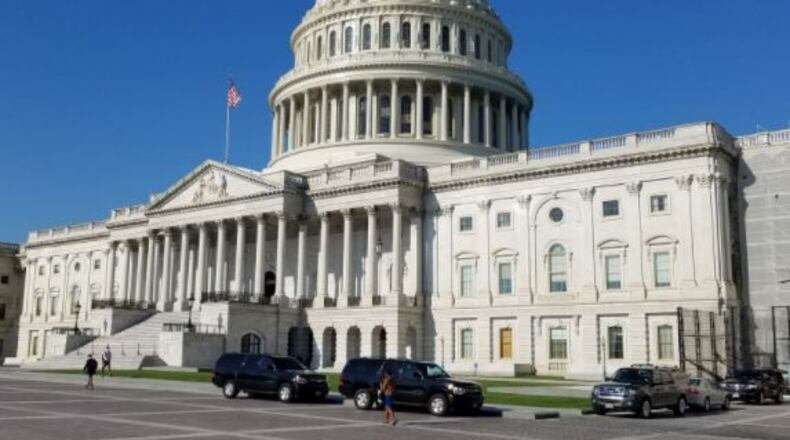After almost doubling the size of an initial aid bill for victims of Hurricane Harvey, the Senate on Thursday moved with bipartisan speed to approve $15.25 billion in new disaster aid money, what may be only the first installment in what could be an expensive recovery tab for areas along the Texas Gulf Coast. The bill must go back to the House for final approval, before being sent to the President's desk.
The Senate vote was 80-17. The original House bill had $7.85 billion to help with disaster efforts at FEMA and the Small Business Administration; the Senate bill added a separate $7.4 billion for emergency housing efforts.
"I want the Senate to be forewarned, that this $15 billion package, this is only temporary," said Sen. Bill Nelson (D-FL), as he made clear that disaster needs from a possible strike by Hurricane Irma would require more Congressional action to ensure that FEMA has enough aid resources.
Without action, lawmakers warned that FEMA could run out of disaster funding as early as Friday, and no later than Tuesday.
The extra housing money added by the Senate would be targeted for “disaster relief, long-term recovery, restoration of infrastructure and housing, and economic revitalization in the most impacted and distressed areas resulting from a major disaster declared in 2017," which means it could be used for Harvey or Irma, as well.
The Senate vote came a day after President Donald Trump brokered a deal with Congressional Democrats to also include provisions in the Harvey measure that would extend the nation's borrowing authority (debt limit) into December, along with a temporary funding bill for the federal government, and an extension of authority for the federal flood insurance program.
Credit: Jamie Dupree
Credit: Jamie Dupree
That move by Mr. Trump was bitterly denounced by a number of GOP lawmakers on Capitol Hill.
"This is an embarrassing moment for a Republican controlled Congress and a Republican controlled administration," said Sen. Ben Sasse (R-NE), who tried but failed to block the debt limit increase and the stopgap budget.
The Senate voted 72-25 against Sasse's motion.
"Disaster relief and the debt ceiling should have been completely separate," said Sen. James Lankford (R-OK).
Earlier, the Senate voted 87-10 to block a move by Sen. Rand Paul (R-KY) to force Congress to make cuts to foreign aid programs in order to pay for the $15 billion in disaster relief spending.
"Nobody has the courage to say, why don't we pay for it," Paul grumbled on the Senate floor, knowing his effort to offset the cost of the aid had little chance of success.
Over in the House, Republicans were not pleased with the developments - especially the addition of the debt limit increase and the temporary budget known as a CR, or Continuing Resolution.
"Certainly, I'm not anti-Texas," said Rep. Joe Barton (R-TX), who voted for the initial aid plan, but said these additions will force him to vote against it on Friday in the House.
"But the same Texans that are now in distress - when they get back on their feet - are going to be part of the group that's paying all this money back," Barton told reporters off the House floor.
"I personally think there would probably have been a better way to go about it, I don't like this deal," said Rep. Doug Collins (R-GA).
The Congressional grumbling and the Senate votes came as federal emergency officials turned their focus from Harvey recovery to storm readiness in Florida, as forecasts indicated a possible hit on southern Florida by Sunday morning.
Many experts believe a strike like that, could mean a recovery bill even larger than what faces Houston and Texas after Harvey.
"We think we're as well prepared as you could possibly be," President Trump said to reporters gathered in the Oval Office.
One uncertainty continued to be with the various hurricane models, which showed everything from a strike on the southwestern side of Florida, to Miami, to a storm that missed Florida entirely.
"Even in our era of rampant internet hyperbole, it's hard to overstate the catastrophic risk Irma poses," said Daniel Swain, a UCLA climate scientist.
The National Weather Service meanwhile, was using even more direct language.
"Devastating to Catastrophic," the Miami weather service staff warned about possible damage from Irma. "Locations may be uninhabitable for weeks or months."
About the Author



